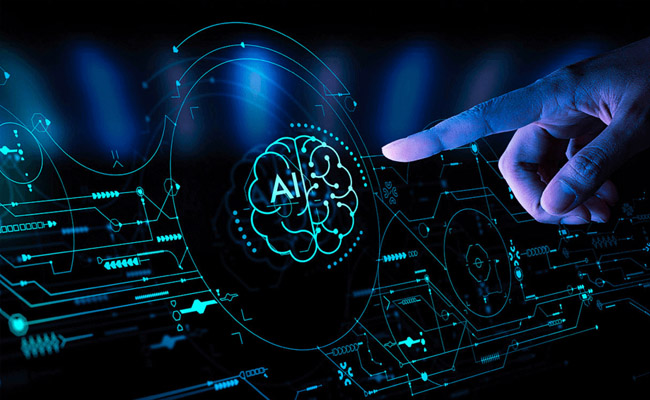Impacts of AI on cybersecurity
By MYBRANDBOOK

Artificial Intelligence and Machine Learning have both negative and positive effects on cybersecurity. AI algorithms use training data to learn how to respond to different situations. They learn by copying and adding additional information as they go along.
According to a report by Juniper Research, the use of AI for fraud detection and prevention is expected to save businesses $11 billion annually by 2023.
Key Challenges faced from Cybersecurity today are:
Attacks are becoming more and more dangerous despite the advancements in cybersecurity. The main challenges of cybersecurity include:
Geographically-distant IT systems—geographical distance makes manual tracking of incidents more difficult. Cybersecurity experts need to overcome differences in infrastructure to successfully monitor incidents across regions.
Manual threat hunting—can be expensive and time-consuming, resulting in more unnoticed attacks.
Reactive nature of cybersecurity—companies can resolve problems only after they have already happened. Predicting threats before they occur is a great challenge for security experts.
Hackers often hide and change their IP addresses—hackers use different programs like Virtual Private Networks (VPN), Proxy servers, Tor browsers, and more. These programs help hackers stay anonymous and undetected.
A report says, Signature-based techniques can detect about 90% of threats. Replacing traditional techniques with AI can increase the detection rates up to 95%, but you will get an explosion of false positives. The best solution would be to combine both traditional methods and AI. This can result in 100% detection rate and minimize false positives.
Artificial Intelligence is widely used in web filtering to help organizations and individuals protect against malicious websites and content on the internet - just like SafeDNS does. Its AI algorithms analyze and classify web content in real-time, which allows web filtering software to quickly identify and block websites that contain harmful content, such as malware, phishing scams, and inappropriate material. These algorithms can also learn and adapt to new threats over time, making web filtering more effective and efficient.
Artificial intelligence and machine learning can improve security, while at the same time making it easier for cybercriminals to penetrate systems with no human intervention.


Legal Battle Over IT Act Intensifies Amid Musk’s India Plans
The outcome of the legal dispute between X Corp and the Indian government c...

Wipro inks 10-year deal with Phoenix Group's ReAssure UK worth
The agreement, executed through Wipro and its 100% subsidiary,...

Centre announces that DPDP Rules nearing Finalisation by April
The government seeks to refine the rules for robust data protection, ensuri...

Home Ministry cracks down on PoS agents in digital arrest scam
Digital arrest scams are a growing cybercrime where victims are coerced or ...


Icons Of India : NIKHIL RATHI
Co-founder & CEO of Web Werks, a global leader in Data Centers and Clo...

ICONS OF INDIA : VIJAY SHEKHAR SHARMA
Vijay Shekhar Sharma is an Indian technology entrepreneur and multimil...

Icons Of India : Debjani Ghosh
Debjani Ghosh is the President of the National Association of Software...


STPI - Software Technology Parks of India
STPI promotes and facilitates the growth of the IT and ITES industry i...

C-DOT - Center of Development of Telematics
India’s premier research and development center focused on telecommu...

LIC - Life Insurance Corporation of India
LIC is the largest state-owned life insurance company in India...


Indian Tech Talent Excelling The Tech World - ANJALI SUD, CEO – Tubi
Anjali Sud, the former CEO of Vimeo, now leads Tubi, Fox Corporation�...

Indian Tech Talent Excelling The Tech World - Shantanu Narayen, CEO- Adobe Systems Incorporated
Shantanu Narayen, CEO of Adobe Systems Incorporated, is renowned for h...

Indian Tech Talent Excelling The Tech World - AJAY BANGA, President - World Bank
Ajay Banga is an Indian-born American business executive who currently...
 of images belongs to the respective copyright holders
of images belongs to the respective copyright holders